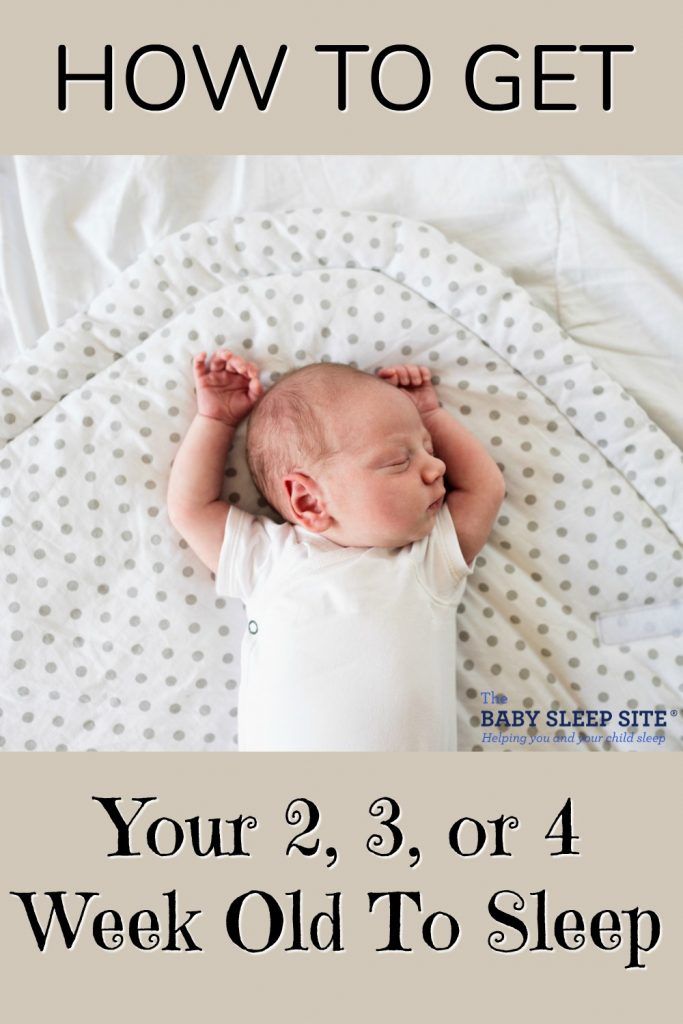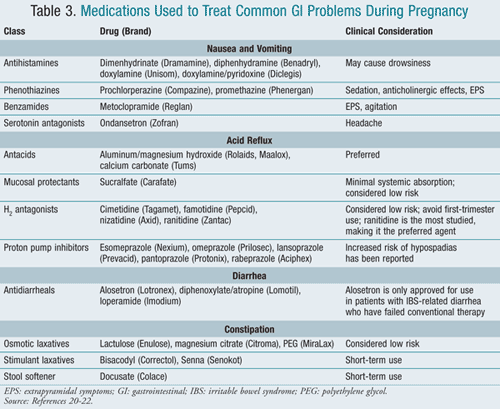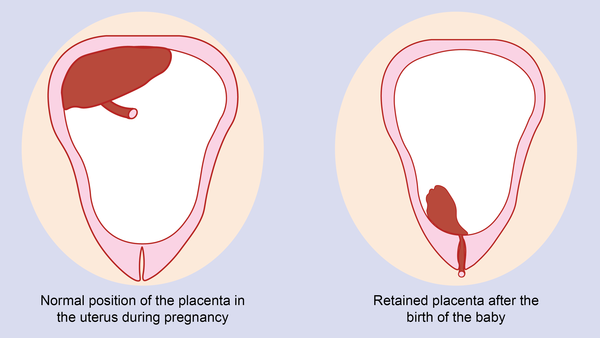Why does my newborn sleep so much
Why newborns and babies sleep so much
Newborns need a lot of sleep – about 14 to 18 hours a day. It's normal for newborns to sleep almost constantly in the early weeks, waking only long enough to eat and then fall back asleep. All that rest plays a critical role in their rapid growth and development. But if you're worried your baby may be sleeping too much, talk to your pediatrician.
Sleep can be one of the most baffling issues of new parenthood. As many of us learn through gritty nights and zombie-like days, babies simply don't sleep like adults – especially as newborns. Here's why.
How much sleep do newborns need?
In those early weeks, your baby may rack up sleep hours like a college student home on winter break. But here's the catch: Most newborns don't stay asleep for more than two to four hours at a time, day or night, during the first few months of life.
Newborns typically sleep 14 to 18 hours a day in the first weeks and 12 to 16 hours by the time they're a month old. (Because every baby is an individual, some sleep a bit less or a bit more than average.)
Unfortunately, even if your newborn is a sleep glutton, you'll likely be exhausted. Because their stomachs are so small, newborns typically wake up to eat every two to three hours. So while the total amount of time newborns sleep is a lot, it isn't all in one stretch.
Plus, many babies also arrive in the world with their days and nights reversed. These little night owls sleep for longer stretches during the daytime, saving their more alert periods for nighttime.
Why your newborn sleeps so much
At first it may seem like all your baby does is sleep and eat, and for the first few weeks of your little one's life that's to be expected. But all that snoozing doesn't just make for great cuddling; your baby's brain is also working hard as they sleep.
Babies grow incredibly fast in their first year of life. By about a year old, your baby is likely to have tripled their birth weight. In the first year, your little one will learn to roll over, sit up, crawl, stand, eat solid food, learn social skills, and maybe even walk and say words. Sleep is an important part of that physical and mental development.
In the first year, your little one will learn to roll over, sit up, crawl, stand, eat solid food, learn social skills, and maybe even walk and say words. Sleep is an important part of that physical and mental development.
Sleep helps promote learning. Your baby is constantly taking in new information about their environment. Newborn sleep also plays a role in memory consolidation, sensory processing, and preparing babies to explore their environments in new ways.
In short, newborns sleep so much because they're learning so much and growing so quickly. All that rest helps fuel the big changes they're going through.
Advertisement | page continues below
Can babies sleep too much?
It's normal for newborns to sleep almost constantly, waking only long enough to eat before they start snoozing again. By about a month old, your baby may start spending more time awake, quietly taking in the world around them.
How long your baby can stay awake before they need to sleep again depends on many factors, including their temperament and the duration of their last nap. This is often referred to as their wake window, and it grows as they get older. Newborns can only stay awake for about an hour to an hour and a half before needing to nap again.
This is often referred to as their wake window, and it grows as they get older. Newborns can only stay awake for about an hour to an hour and a half before needing to nap again.
Some babies may be such intense sleepers that they don't wake to eat as often as they need to. The American Academy of Pediatrics (AAP) recommends waking newborns to eat every two to three hours during the day and every four hours at night until they've regained their birth weight.
There may also be periods when you notice your baby sleeping more than usual. There are many reasons a baby may occasionally need more sleep, including:
- A minor illness, like a cold. Babies need rest to recover from illness just like adults do.
- Growth spurts. Babies go through several periods of rapid growth in their first year of life. These growth spurts require more rest to help fuel the body's changes.
- Recent vaccination. Your baby may sleep more after getting shots as their body works on building immunity.
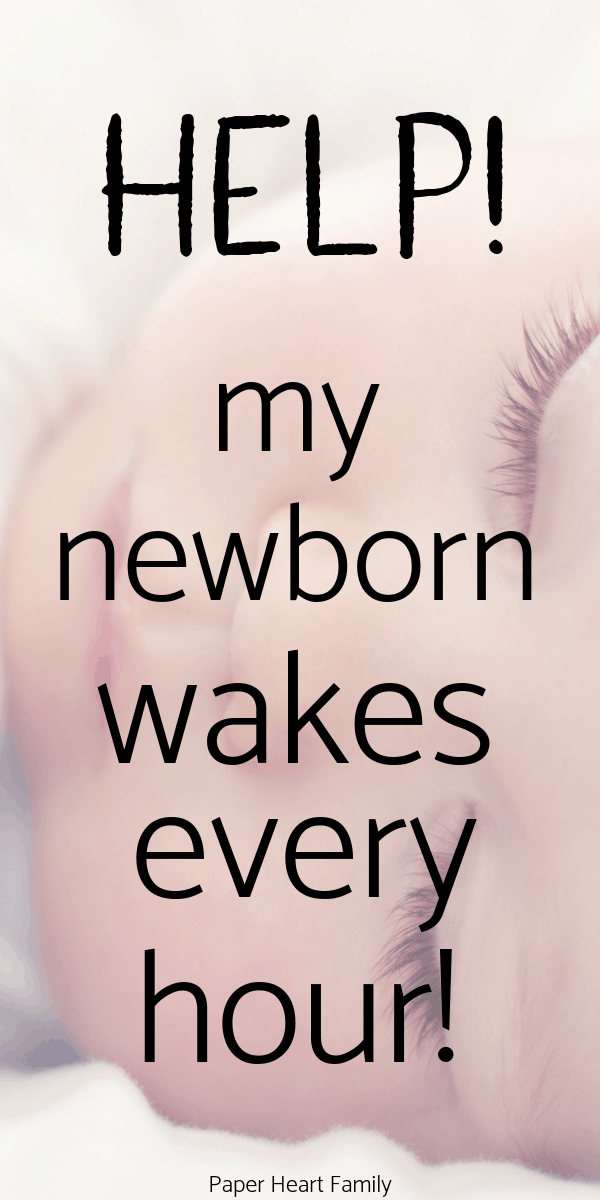
- Jaundice. Jaundice is common in newborns, particularly those born before 38 weeks. Newborns with jaundice tend to sleep more than newborns without jaundice. Mild jaundice often disappears on its own after two to three weeks.
Occasional periods of increased sleep are normal and usually not cause for concern. But if your newborn's longer bouts of sleep are accompanied by a fever or signs of respiratory distress like fast breathing or grunting while breathing, call your pediatrician immediately. Also call the doctor if your baby doesn't wake up regularly to eat. These could be signs of a more serious medical issue.
Learn more:
- Sleep safety
- Everything to know about naps
- Bedtime routines
- Expert sleep strategies for babies
- Parents' favorite baby sleep tips
Newborn Sleeping Too Much: Is This Normal?
Newborn sleeping routines can be puzzling to new parents. As your baby gets used to life outside the womb, they might have trouble adjusting to a daily routine.
You might wonder if they’re sleeping too much, or too little. Here’s a look at what to expect from your newborn’s sleep patterns in their first few weeks of life.
In the comfort of the womb, your baby spent a lot of time sleeping. They were surrounded by warmth, and lulled by your voice.
Once born, your baby might sleep for most of the day.
Newborns have small stomachs, so they get full quickly. Whether you’re breast-feeding or formula-feeding, being held close and comfortably enhances their sleepiness. This can cause them to fall asleep before they’re full. As a result, they might wake up often to eat.
But if your baby sleeps for long stretches, and it seems they’re doing so at the expense of getting up to eat, what then?
After an initial post-birth drop in weight, expect your newborn to settle into a feeding routine. They’ll gain back the weight, and most babies grow steadily from then onward.
You can monitor your baby’s growth progress by keeping track of their feedings and dirty diapers.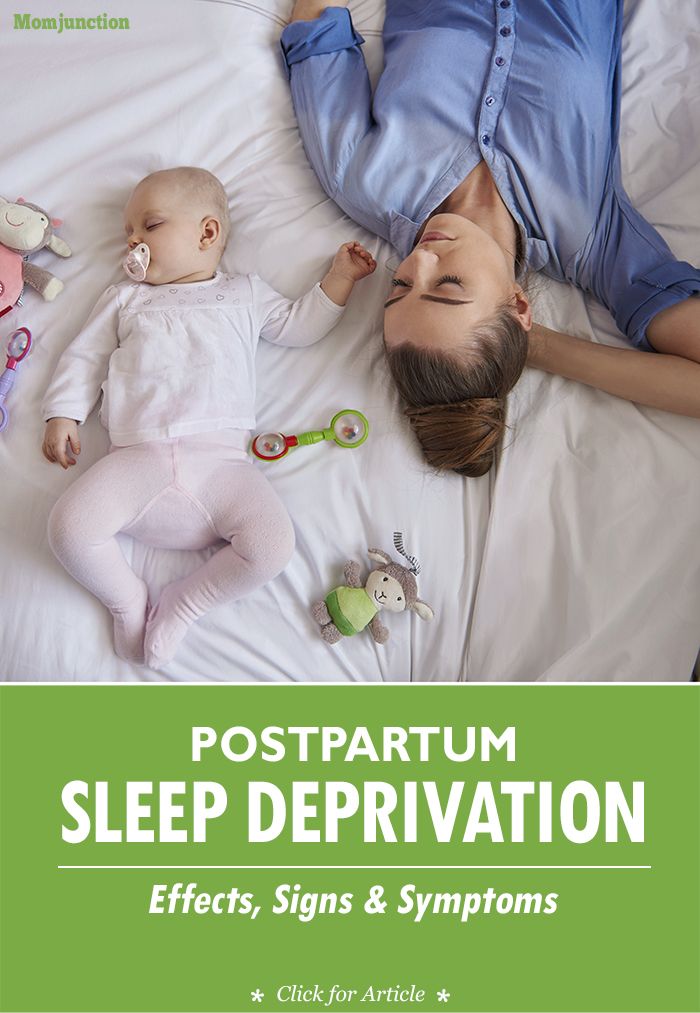 Your pediatrician will also weigh them at each checkup.
Your pediatrician will also weigh them at each checkup.
Over 24 hours, most babies need approximately 25 ounces of breast milk. That volume will stay fairly constant for the first six months of life, except during growth spurts. You should see your baby’s weight increase, while the number of feedings per day will decrease. They’ll get stronger, and their stomach will get bigger.
Formula-fed babies have a slower rate of feeding than breast-fed babies. They stay full longer, so they’ll feed less often.
Some babies are better sleepers than others. They might not wake up for meals in favor of sleep, though. You’ll need to be extra careful during the first couple of weeks and assess their progress.
Keep an eye on your baby’s diapers. Their urine shouldn’t be too yellow (darker yellow is a sign that baby isn’t drinking enough), and there should be an adequate number of stools of the right color. Mustard in color and seedy texture are normal.
A baby who doesn’t sleep enough will be clingy and whiny. Or, they might be hyper and hard to soothe. A sleepy baby doesn’t have these issues, but can make parents antsy by sleeping too soundly.
Or, they might be hyper and hard to soothe. A sleepy baby doesn’t have these issues, but can make parents antsy by sleeping too soundly.
It takes at least six months for a baby to establish their own circadian rhythm. But if yours seems to be oblivious to any differences between night and day, a bit of help might be just what they need to get used to feeding at regular intervals and thriving.
If you’re dealing with an overly sleepy baby, you’ll first need to make sure there are no medical issues causing them to sleep all the time.
Jaundice, infections, and any medical procedures, such as circumcision, can make your baby sleepier than usual.
Your pediatrician will check if your baby is gaining enough weight. If not, you might need to wake them up to eat every three hours (or more) depending on your doctor’s recommendations.
Here are some things you can try to promote regular sleeping (and feeding) schedules:
- Take your baby out for walks during the day so they will be exposed to natural light.

- Develop a calming evening routine that includes a bath, massage, and nursing.
- Try removing some layers of clothing so they’ll be less warm and wake up when it’s time to feed.
- Try touching their face with a wet washcloth, or lift them up to burp before moving them to the other breast.
- Too much stimulation during the day can make your baby overtired. They might fall asleep despite being hungry.
You can also try to monitor their rapid eye movement (REM) sleep stage. This is the light sleep stage.
During REM, you should be able to wake up your baby more easily than when they move to a deep sleep stage. But keep in mind that light and deep sleep stages alternate more often in babies than they do in adults.
If your baby is gaining weight steadily after a few weeks, but still sleeping a lot, try to relax. Accept the fact that you might simply be dealing with a good sleeper. Try to enjoy it while it lasts. You should catch up on your sleep, too.
“For the first two or three weeks after birth, most babies do little but eat and sleep. But they should be waking up for at least 8 to 12 feedings per 24 hours. After three weeks, sleep patterns are more variable, with some babies sleeping longer stretches than others.”
— Karen Gill, MD, FAAP
Article | How much sleep do healthy babies get?
Popular wisdom says: "In any incomprehensible situation, go to bed" and "Morning is wiser than evening." These proverbs were born only when observing babies. Indeed, sleep solves many problems for them. He slept a little longer - and everything is fine with him, he got stronger, grew up and wakes up in a good mood. Why is that?
Why sleep is so important
Sleep is not just a time of rest when nothing happens to us. This is a whole complex of mechanisms invisible to the eye, the work of which goes according to a certain scenario. Sleep should be treated with respect and attention. Sleep time should never be sacrificed. Sleep deficiency in an adult causes a 45% decline in working capacity, and chronic sleep deprivation can lead to depression, overeating, behavioral changes, irritability, and reduced immunity. nine0005
Sleep time should never be sacrificed. Sleep deficiency in an adult causes a 45% decline in working capacity, and chronic sleep deprivation can lead to depression, overeating, behavioral changes, irritability, and reduced immunity. nine0005
If you don't get enough sleep, your mood will be bad and your child will have to deal with a lethargic and irritable mother. Sleep deprivation is one of the main problems of young parents. A newborn does not always sleep "baby sleep" all night, which means that they themselves cannot sleep. On the one hand, all modern parents already know that in the first year of a child's life they will not sleep much. On the other hand, there are things you can do for your own health and for the health of your baby. Namely, try to improve his sleep, especially at night. How to do it? nine0005
Hours of sleep and wakefulness
It is not in vain that the baby spends almost all his time in sleep. It is at this moment that it grows and develops: in the first 2 hours after falling asleep, growth hormone is actively produced. Quality sleep protects the psyche from overwork, strengthens the immune system. It is known that children with improved sleep get sick 30% less. Children's sleep is so important that it will easily overtake all other worries and affairs in the list of priorities. Elena Muradova, a certified consultant on children's and family sleep, suggests such a distribution of the phases of wakefulness and sleep by months. nine0005
Quality sleep protects the psyche from overwork, strengthens the immune system. It is known that children with improved sleep get sick 30% less. Children's sleep is so important that it will easily overtake all other worries and affairs in the list of priorities. Elena Muradova, a certified consultant on children's and family sleep, suggests such a distribution of the phases of wakefulness and sleep by months. nine0005
The table is based on observations of the sleep of healthy infants. It's an average, but it's easy to get an idea of how kids sleep most of the time. Of course, these are not strict norms, but a guideline for parents.
Rhythm of life
Despite the fact that opinions about feeding and sleeping strictly by the clock have long and irrevocably been divided, and habits and way of life in each family are individual, the regimen is still useful to everyone. Both children and parents. The regime is not like a rigid schedule, but like a logical alternation of different phases. It is noticed that the child prefers the predictability of repeating cycles. Thus, biorhythms are easier to establish, which will ensure a healthy rhythm of life, comfortable for both the child and all family members. nine0005
It is noticed that the child prefers the predictability of repeating cycles. Thus, biorhythms are easier to establish, which will ensure a healthy rhythm of life, comfortable for both the child and all family members. nine0005
If you want to fine-tune the daily routine, the best way to do this is to observe and perhaps record how the child behaves during the day. And here there is one secret - to catch the moment, which experts call "window to sleep". During this period of time, the baby is just starting to get tired, but is still in a good mood. As soon as you see that the child's natural activity is waning, you urgently need to leave everything and try to put the baby to sleep.
Signs of fatigue
- Baby rubs eyes;
- yawns;
- naughty;
- his mood deteriorates;
- loses interest in the environment;
- turns away;
- becomes less mobile;
- pulls the ear.
If you do not catch these signs and skip the first stage of drowsiness, then overexcitation may occur, the baby will begin to act up, cry, not breastfeed, refuse to fall asleep. At the moment of danger, an ancient mechanism is activated that prevents sleep: the adrenal glands release hormones into the blood, and at this moment a "second wind" opens. In this state, it is very difficult to put the baby to sleep! Of course, fatigue will take its toll, and the baby will fall asleep, but perhaps already with hysteria and tears. So it is important to catch the moment before the “window to sleep” closes. nine0005
At the moment of danger, an ancient mechanism is activated that prevents sleep: the adrenal glands release hormones into the blood, and at this moment a "second wind" opens. In this state, it is very difficult to put the baby to sleep! Of course, fatigue will take its toll, and the baby will fall asleep, but perhaps already with hysteria and tears. So it is important to catch the moment before the “window to sleep” closes. nine0005
A helpful ritual
Children love it when things happen in sequence, and always in the same order. So they are calmer and they feel safe. This directly applies to the main infant activity - sleep. You need to develop a clear bedding ritual and always stick to it. Dim the lights in the room where the baby will sleep, avoid harsh sounds. A good sleep is where it is quiet, dark, comfortable temperature, and the air is fresh.
By the age of 3 months, you can develop a sleep-wake cycle that is comfortable for you and your baby. With age, the number of episodes of daytime sleep decreases and the main sleep occurs at night. Usually it is 5 hours without waking up for night feedings. nine0005
Usually it is 5 hours without waking up for night feedings. nine0005
Parent traps
Should a child be rocked? Is it possible to teach a child to fall asleep on his own? How long should the laying ritual last? There are no "correct" answers to such questions. Everyone needs a bedtime ritual, but what exactly it will be depends only on you. What you accustom yourself and your child to will happen day after day.
When your baby is 6-8 weeks old, start giving him a chance to fall asleep on his own. How? Put him to bed when he's sleepy but still awake, experts advise. nine0005
The bedtime ritual marks the beginning of sleep, introduces the baby into it, relaxes, fills it with love. Sleep experts advise against rocking or feeding your baby before bed. Parents think that if they start training the child too early, it will not work. But this is not so. Babies develop sleep habits. If you rock your baby before bed every night for the first 8 weeks, why should he expect anything else later?
It is important that the child falls asleep where he will sleep.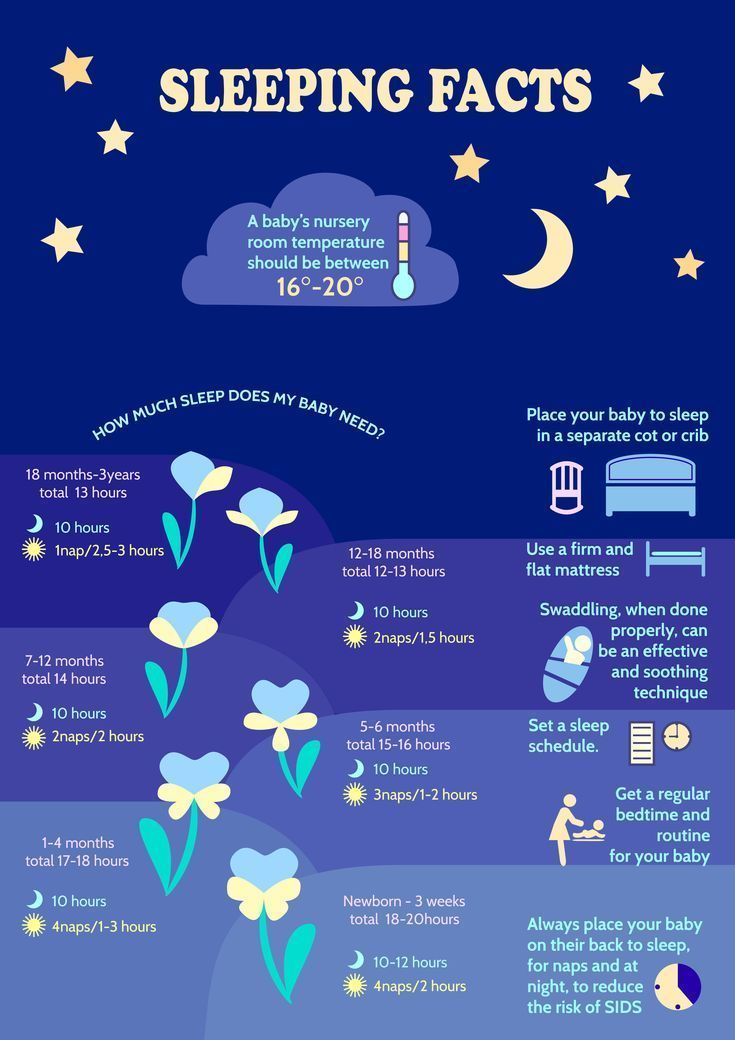 His consciousness remembers the circumstances of falling asleep, and if he suddenly wakes up by accident, he will not understand where he found himself. Anxiety will awaken him completely, and you will have to start all over again. Such associations associated with sleep begin to form in a child from 4 months. nine0005
His consciousness remembers the circumstances of falling asleep, and if he suddenly wakes up by accident, he will not understand where he found himself. Anxiety will awaken him completely, and you will have to start all over again. Such associations associated with sleep begin to form in a child from 4 months. nine0005
There is another mistake that inexperienced parents make: they think that if they put the child to bed later, he will not wake up too early in the morning. At first glance, this is a good idea - teenagers, for example, when they go to bed late, the next day they sleep until noon! Unfortunately, this does not work with young children. The biological clock is a powerful force that wakes young children up at the same time every morning, no matter what time they fall asleep in the evening. Parents who put their child to bed late will get a tired and lethargic baby with signs of apparent lack of sleep the next day. Do not neglect the regime! The child must sleep through the hours of the night assigned to him. nine0005
nine0005
What determines a child's sleep
Once again, we emphasize that the norms of children's sleep are indicative and each child needs his own number of hours of sleep. What does it depend on?
Genetic features or hereditary predisposition. All people are divided into long-sleepers and short-sleepers. Those who get enough sleep for 8-10 hours of sleep are long-sleepers, while those who need 6-7 hours of sleep are short-sleepers. This feature is passed on to your baby. But not only genetics affects the need for sleep. nine0005
Activity while awake. When you work harder, you need more sleep to recover. If a child has received too many new experiences during the day, then he will sleep longer. If the child spent the day calmly, then, most likely, less sleep is needed.
State of health. When unwell, children sleep more and recover in sleep.
Sleep conditions. It has been proven that at a lower temperature, in darkness and with sufficient oxygen, sleep is better. nine0005
nine0005
Sleep preparation can be stimulating or relaxing. Choose the right evening ritual.
IMPORTANT: Children under 5 years of age usually do better if they live on an early schedule, according to the body's biological clock.
And this means that the child should go to bed early and get up early. Then the children wake up fully asleep and in a good mood.
Wake up sleepyhead
Most often, parents sound the alarm when the baby does not sleep or sleeps poorly. But if the child sleeps a lot, parents are usually happy and rarely ask for help. But in vain: a baby under 1 month old who sleeps too long can suffer from dehydration and lose weight. If a baby older than 1 month sleeps more than usual, you need to observe him for a week and not rush to conclusions. If too much sleep is observed for 7 days or more, you should contact a neurologist to check the functioning of the nervous system. nine0005
If you can't manage your baby's sleep on your own, contact a sleep consultant. Children's sleep experts will analyze your regimen, sleep conditions and fall asleep and give all the necessary recommendations. The main criterion of the norm is always the good health of the baby, smiles and cheerfulness.
Children's sleep experts will analyze your regimen, sleep conditions and fall asleep and give all the necessary recommendations. The main criterion of the norm is always the good health of the baby, smiles and cheerfulness.
Sources:
Family Tree Parent Club
Project “Sleep, baby. Sleep training
Baby Sleep Center for Children's Sleep and Development
Happy Mom online school of motherhood and childhood
Fees des bebes magazine
Newborn sleep. Advice from Pampers expert Tatyana Butskaya
Komsomolskaya Pravda
Dom. FamilyMom and babyBUSINESS PRESS
Tatyana BUTSKAYA
January 22, 2016 1:00
Immediately after birth, the child does not know that there are concepts of "day" and "night". In general, it is very difficult for him to get used to the new world, in which there is no familiar aquatic environment, darkness, silence and a constant temperature of 36 degrees
Advice from Pampers expert Tatyana Butskaya. Photo: Courtesy of Pampers
Photo: Courtesy of Pampers
It would seem that they are so small and defenseless, they are stronger than us adults. And in order to adapt to extrauterine life, newborns are constantly SLEEPING!
Sleep in the first months of a child's life is as necessary as air, as breast milk. In the first 10-14 days, children are practically not sensitive to external stimuli, they are protected by sleep. If the baby does not sleep well, he will lag behind in development. The brain grows during sleep! nine0005
However, how much should a newborn sleep? Often you can find information about 16 - 20 hours of sleep. But this is the “average temperature in the hospital”, because the corridor of normal values is quite wide here - from 14 to 22 hours! If a child maintains a certain interval of sleep and wakefulness, eats well, gains weight, falls asleep without screaming, then his biological clock is set to such a schedule. For information, I will say that according to science, a newborn needs short 40-50 minute periods of activity. During this time, the child should wake up, eat, change clothes and fall asleep again. Not life, but a fairy tale. Like any fairy tale, it eventually ends. And this happens somewhere by 3-4 weeks of life. nine0005
During this time, the child should wake up, eat, change clothes and fall asleep again. Not life, but a fairy tale. Like any fairy tale, it eventually ends. And this happens somewhere by 3-4 weeks of life. nine0005
If during the first month the parents do not teach the child that there are concepts of “day” and “night”, then later on they will have to make a lot of efforts for this, including sacrificing their sleepless nights. Important information: the most useful sleep for a person of any age from 0 to 99 years old is before 12 am (more precisely, from 19.00 to 01.00) - everyone knows this, but everyone also ignores it. It seems to us that we will catch up later. We won't catch up. The structure of sleep in the morning is completely different; it does not contribute to the development of the brain in a newborn and the full recovery of his parents. nine0005
I am often asked “How can a newborn be taught to sleep at night if he wakes up every 2-3-4 hours to eat?” This is the right question, because the child has two main dominants: sleep and food. The ventricle is small, less than 100 ml of food is placed in it, which means that it asks to eat often. We accept these laws of nature without intending to change them. We adapt to them.
The ventricle is small, less than 100 ml of food is placed in it, which means that it asks to eat often. We accept these laws of nature without intending to change them. We adapt to them.
Advice from Pampers expert Tatyana Butskaya. Photo: Courtesy of Pampers
From the first weeks of a newborn's life, parents must live in a day/night rhythm. During the day, the apartment is bright and sunny, the curtains are open, the lamps are on. Nobody whispers or walks on tiptoe. This does not mean that you need to turn on your favorite radio station at full volume. Extremes are not our friends. As well as development methods that are not age appropriate. The abundance of emotional impressions during the day and especially in the evening can lead to crying at night - this is a reaction to excessive nervous tension. Pay more attention to tactile and verbal communication with the newborn. Hug him, kiss him, stroke him, talk to him, sing lullabies. But it is better to leave the lesson on the system of early development with CDs until the moment when the child's eyes begin to look at the world in an adult way. This will happen closer to the age of one month. Although it is still very, very early to accustom a child to a TV screen and a tablet a month. nine0005
This will happen closer to the age of one month. Although it is still very, very early to accustom a child to a TV screen and a tablet a month. nine0005
Next, learn to recognize REM and NREM sleep. This is not a theory, but a real practice, I’ll tell you why below. So, during REM sleep, the pupils of children actively move, they move their arms and legs, make faces, reproduce sucking movements with their mouths, and make various sounds. In this phase, sometimes the newborn may begin to cry in his sleep. If at this moment you grab the child in your arms and begin to soothe, then the result will be the opposite of what was expected - the baby will wake up. Remember, during REM sleep, it is better not to disturb the child. He will sob a couple of times and fall asleep further. nine0005
Babies can also wake up when moving from one sleep cycle to another. Such momentary awakenings are needed to control the situation - “Is everything okay? Are your parents around? Am I wet? Do I want to eat?" And if the parents rocked the child in their arms, and then put them to sleep in the crib, then after 20-40 minutes the child can wake up, scan the situation and turn on the panic button. In a second, the parents will hear a loud cry. If the situation repeats - motion sickness in the arms, and sleep in the crib, then after a certain short time the child will wake up again. The conclusion is that you don't want to become hostages of a "manual child" with neurological symptoms caused by frequent microconcussions of the brain - teach your baby to fall asleep in a crib. Sit next to him, hug him, sing a song, but do not take him in your arms. After a couple of weeks, the child will understand that the crib is the norm and will no longer perceive it as an aggressor. nine0005
In a second, the parents will hear a loud cry. If the situation repeats - motion sickness in the arms, and sleep in the crib, then after a certain short time the child will wake up again. The conclusion is that you don't want to become hostages of a "manual child" with neurological symptoms caused by frequent microconcussions of the brain - teach your baby to fall asleep in a crib. Sit next to him, hug him, sing a song, but do not take him in your arms. After a couple of weeks, the child will understand that the crib is the norm and will no longer perceive it as an aggressor. nine0005
What to do with the hands that live their own lives in newborns and interfere with falling asleep or wake them up with careless movements? First, you need to understand that this is not a pathology and not a feature of your child, but just a congenital Moro reflex. Secondly, you need to swaddle. Though freely, even though only handles, it is better to fix them and let the baby fall asleep than to fight for the freedom and independence of an eternally sleepy child.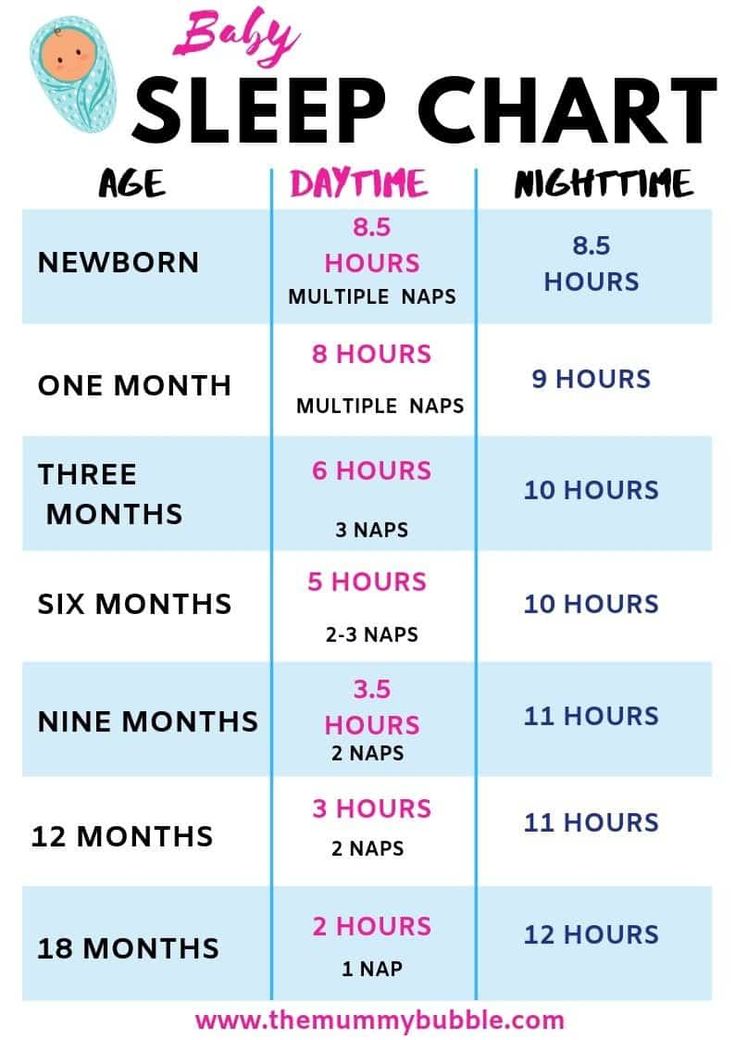
Pampers. Photo: Courtesy of Pampers
Tips for new parents:
1. Half an hour before bedtime, dim the lights in all the apartment, turn off the sound on TVs. It should be NIGHT in the apartment. In the children's room, a night light can be turned on, no more.
2. If dad comes home from work five minutes before the newborn lights out, then this is not a reason for fun games. Dad's happy face is already an irritant for the child's nervous system. There are two ways out - either dad tries to come an hour earlier, or kisses the already sleeping baby. There is also the option of communication between a newborn and dad at night, but this option is rarely used, because men need to get enough sleep before a working day. In fact, nursing mothers also need to get enough sleep, and this is the next paragraph. nine0005
3. A calm mother is one who sleeps enough. Even taking into account night feedings, you can get enough sleep if you live in the rhythm of a newborn. He fell asleep - you fell asleep, he woke up - you woke up. Usually, 3-4 such intervals are enough for a mother to feel good.
He fell asleep - you fell asleep, he woke up - you woke up. Usually, 3-4 such intervals are enough for a mother to feel good.
4. When a child wakes up at night, it is necessary not only to feed him, but also to change his diaper. Proper diapers that do not leak, do not irritate the skin, do not cause prickly heat and allergies - this is the key to a healthy sleep for a child. Pampers baby diapers are as soft as silk, as gentle as a mother's kiss, and will keep your little one awake. If the child peed, then the liquid is distributed over the entire surface of the diaper, if he pooped, then the liquid fraction is immediately absorbed and does not irritate the skin. For children in the first days of life, there are diapers with a slit for the navel, the irritation of which can disrupt the baby's sleep. nine0005
5. When you feed your baby and change a diaper at night, do not turn on the light or go out into another room. Do not speak loudly or play with your child. The processes of feeding and changing clothes should take place in darkness and silence.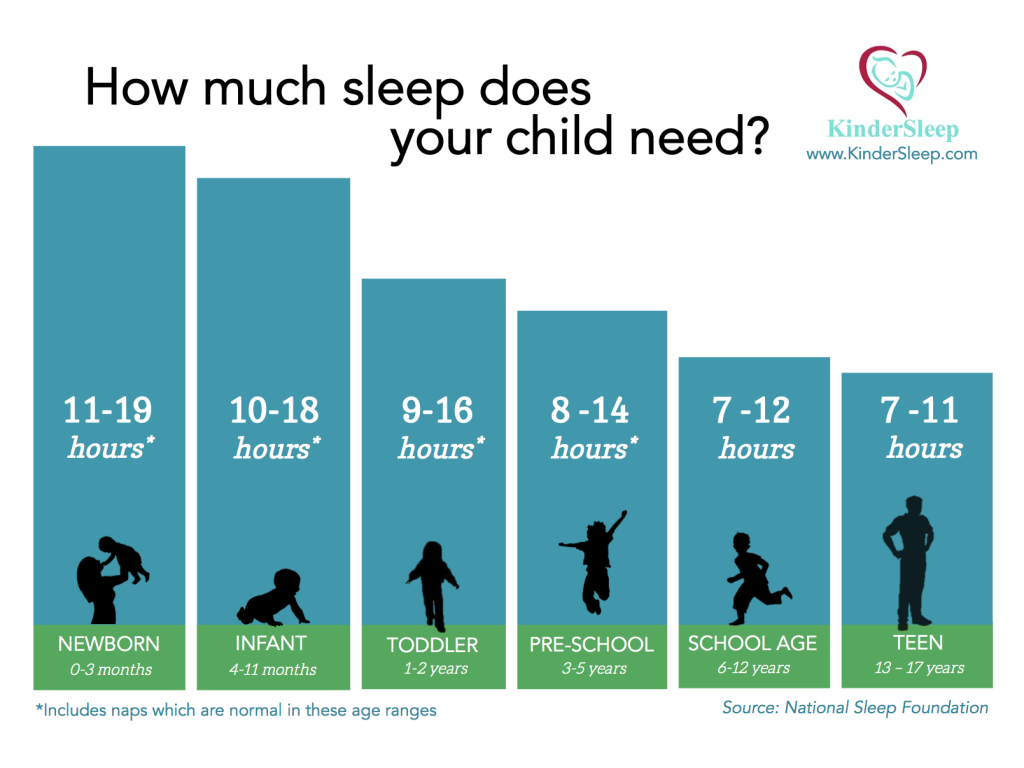
6. Newborns should sleep on their back or side. There are special positioners that help keep the child in the correct position. Often parents say "my child, like me, loves to sleep on his stomach." This is dangerous. The baby can bury his nose in the mattress. nine0005
7. Children under 1 year of age should sleep without a pillow.
8. Do not use on newborn duvets. The child may turn unsuccessfully and end up under the covers. If you want to cover the child with a blanket, then knitted is better. Tuck it under the mattress.
9. Avoid overheating the child at night and keep the temperature in the child's room comfortable for adults, preferably around 20 degrees.
10. Air humidifiers are useful for newborns, because in standard apartments, especially in winter, when the batteries are heated, the humidity is sharply reduced. nine0005
In conclusion, I would like to say that sleep problems in a child can be associated not only with disruption of the rhythm of the day or physiological discomfort.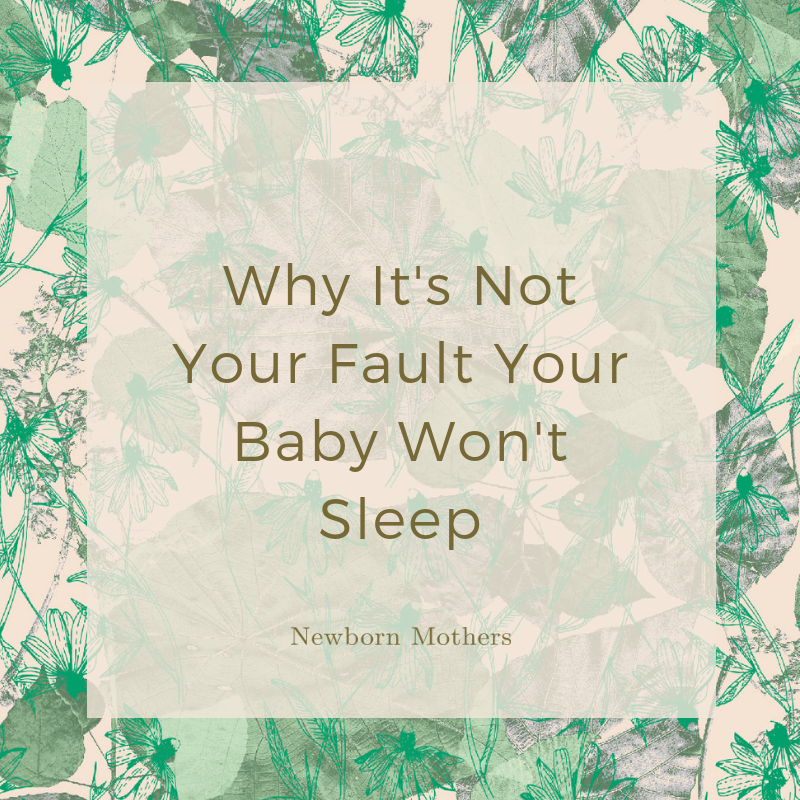 Allergic diseases accompanied by itching, colic, tormenting children from birth to 3 months, gastric reflux, iron deficiency anemia, rickets, respiratory malformations - such diagnoses are made by a pediatrician and it also treats them. Any self-treatment, especially on the Internet, is harm and quackery.
Allergic diseases accompanied by itching, colic, tormenting children from birth to 3 months, gastric reflux, iron deficiency anemia, rickets, respiratory malformations - such diagnoses are made by a pediatrician and it also treats them. Any self-treatment, especially on the Internet, is harm and quackery.
Advertising
Site age category 18+
The online publication (website) is registered by Roskomnadzor, certificate El No. FS77-80505 dated March 15, 2021.
CHIEF EDITOR OLESIA VYACHESLAVOVNA NOSOVA
EDITOR-IN-CHIEF OF THE SITE - KANSK VICTOR FYODOROVICH.
THE AUTHOR OF THE MODERN VERSION OF THE EDITION IS SUNGORKIN VLADIMIR NIKOLAEVICH.
Messages and comments from site readers are posted without preliminary editing. The editors reserve the right to remove them from the site or edit them if the specified messages and comments are an abuse of freedom mass media or violation of other requirements of the law.